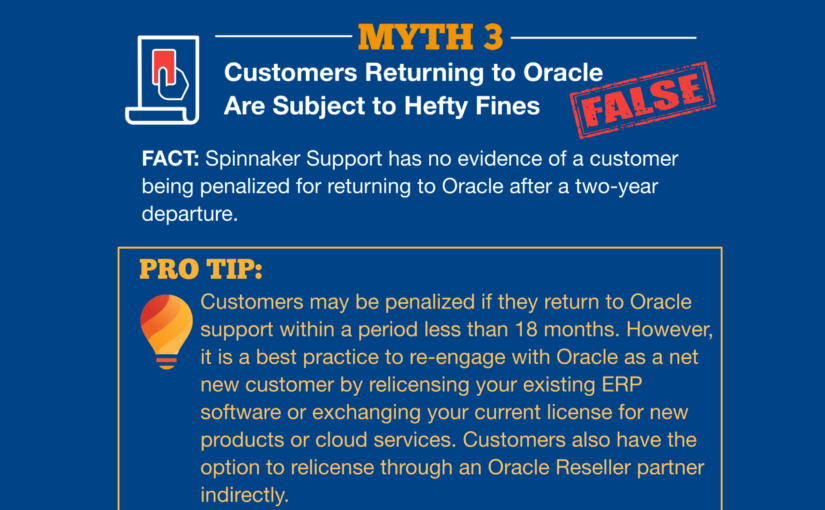
March 26, 2018 | Michelle Wilkinson | Senior Director, Marketing
Earlier this month, Spinnaker Support exhibited at the Gartner Symposium/ITxpo in Dubai for a second consecutive year. After the incredible awareness created in 2017, we were excited to reconnect with contacts made last year and to further educate regional CIOs on third-party support benefits.
It was advantageous to bring a customer located in the Gulf Coast Cooperative (GCC) region to the event. Our customer, Saudi Arabia-based Alamar Foods, shared their third-party support case study with other event attendees. We met Alamar Foods at last year’s Dubai Symposium. They immediately began exploring our alternative support model and signed with Spinnaker Support in October 2017. Full transition to Spinnaker Support was completed at the end of November. AlMutaz Mah’d, Head of ICT and SSC, co-presented with us regarding their decision-making process.
Alamar Foods’ Oracle Footprint
Alamar Foods has been running E-Business Suite (EBS) since 2013. Currently, they are on version 12.1.3 using the following modules: Financials; Supply Chain; Manufacturing; HR & Payroll; HR Self Service; i-Expenses; BI Apps; Mobile Apps; and Oracle Web Center. They have a customized integration with their Point of Sale (POS) system supporting 400 concurrent users in Saudi Arabia, Qatar, Bahrain, United Arab Emirates, and Jordan.
Why Switch to Spinnaker Support?
Before meeting Spinnaker Support, Alamar Foods never realized there was a viable alternative to replace Oracle-provided support. They were happy to learn that Spinnaker Support could legally provide a superior level of support for dramatic cost savings. Alamar Foods had long felt that Oracle’s support fees were “unjustified,” and found Oracle unwilling to negotiate. Additionally, Alamar Foods was frustrated with Oracle’s ticket handling process. With every logged ticket, they were required to answer a battery of questions before Oracle would even open a case. Alamar Food’s IT team was continually repeating themselves and wasting much time – even when the issue was Severity 1.
Mr. Mah’d presented his business case for the switch to third-party support. He delivered an extensive evaluation to the management team, comparing Spinnaker Support, Oracle support, and another leading third-party support vendor. After facing tough questions on topics like support quality, cost/value, and risk, all decision makers agreed that Spinnaker Support was the best choice for Alamar Foods. They were optimistic at the prospects of redirecting savings towards more strategic projects.
The Pros and Cons as Presented by Alamar Foods
- Dedicated Account Support Lead (ASL): Having someone respond to tickets who “understands the history and their business” is a huge benefit. As mentioned above, the Alamar Foods IT team was wasting too much time describing their environment, reviewing past tickets, and explaining the current issue. Now they don’t have to go through the entire story, and that level of frustration is gone. They know who they will be talking to because they have been introduced virtually to the Spinnaker Support team, not just the ASL. The entire Spinnaker Support team is intimately familiar with the customer’s environment plans, people, etc.
- Clear and efficient process: From onboarding to logging their first ticket, Alamar Foods has been impressed with the ISO 9001:2015-certified processes that have been put in place to ensure fast response times, 24 x 7 x 365.
- Self-service time saved: Mr. Mah’d mentioned in his presentation that one of the cons of switching was that his team had become proficient at using the Oracle’s knowledge base (My Oracle Support) to troubleshoot and resolve issues on their own. They had been well trained by Oracle to do much up-front work to solve their problems. It had become a way of life. As it turns out, this con has become a pro. Alamar Foods logs tickets and Spinnaker Support EBS experts produce solutions. It is undoubtedly a new way of thinking, but after five months I believe they are embracing the new way forward. They have logged over 40 tickets with us to date and are very happy with our service.
Conclusion
While third-party support was still a relatively new concept to the 650 attendees of Gartner’s Symposium/ITxpo in Dubai, it is gaining traction due to a promise of significantly increased service levels with savings on average of 62%. Many organizations we spoke with told us of the almost non-existent service provided by both Oracle and SAP in the GCC region. Hearing success stories like the one of Alamar Foods is validating that Spinnaker Support is an established global alternative to vendor-provided support.

Discover exceptional, tailored solutions at unparalleled value




